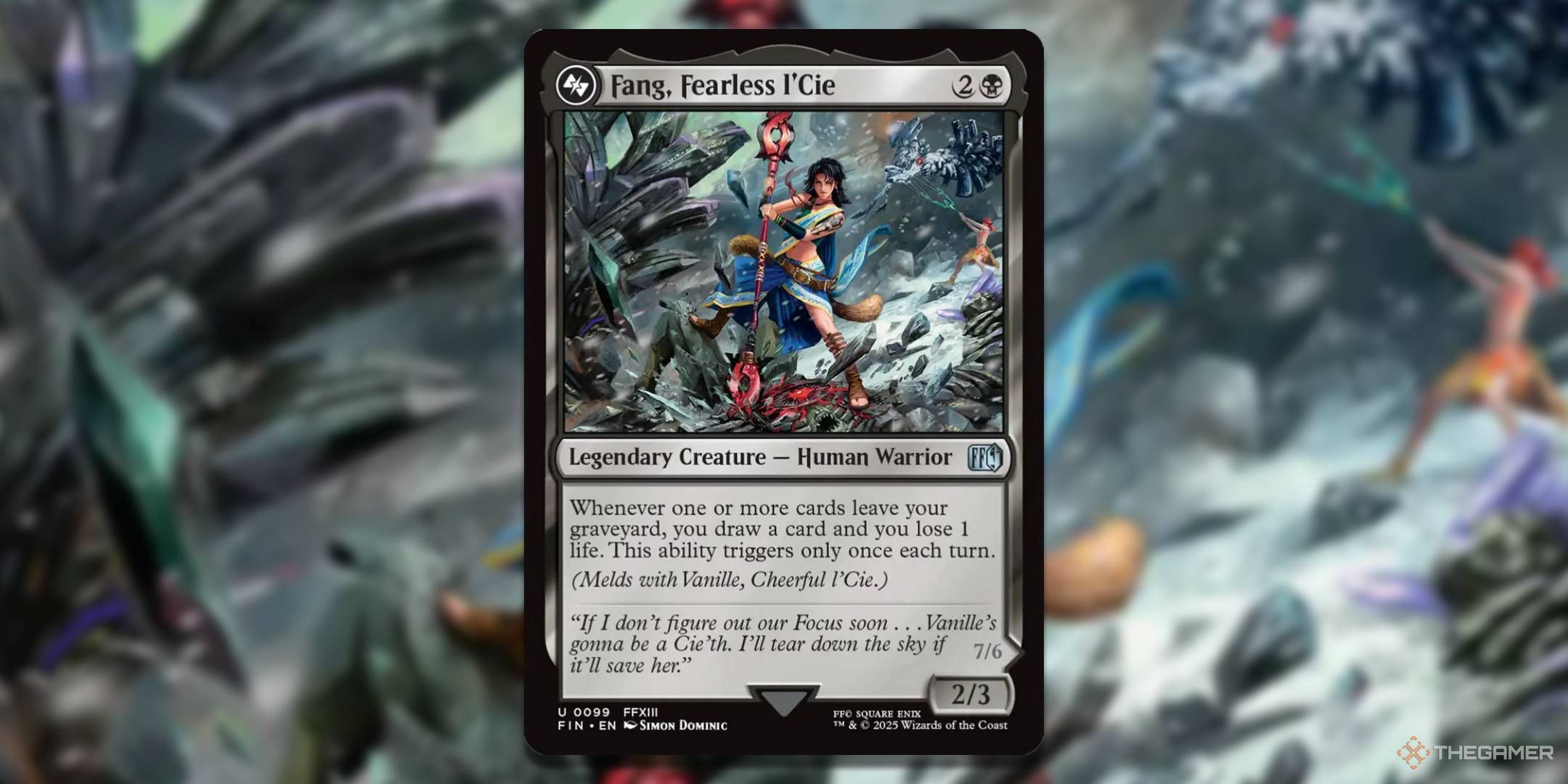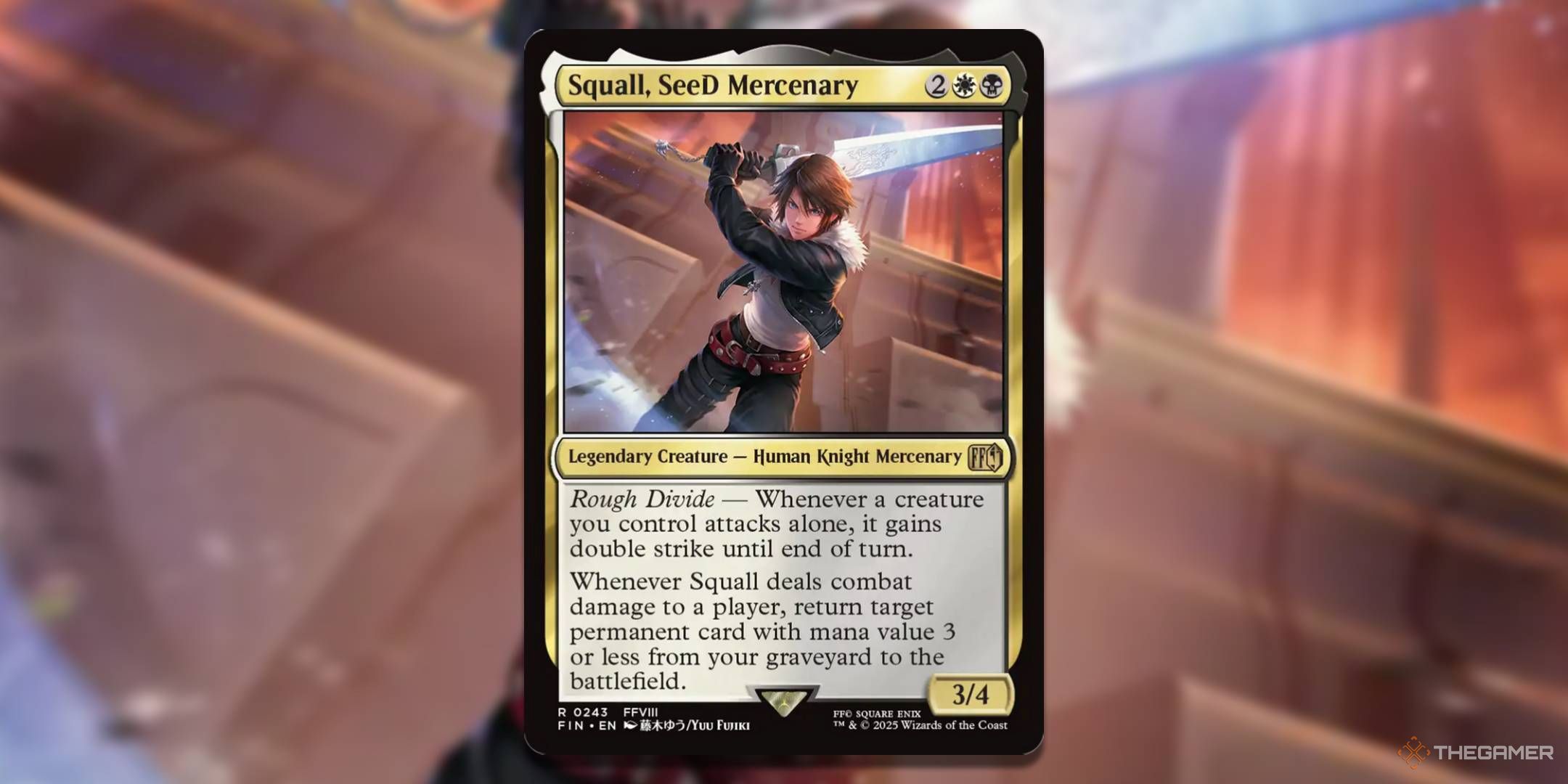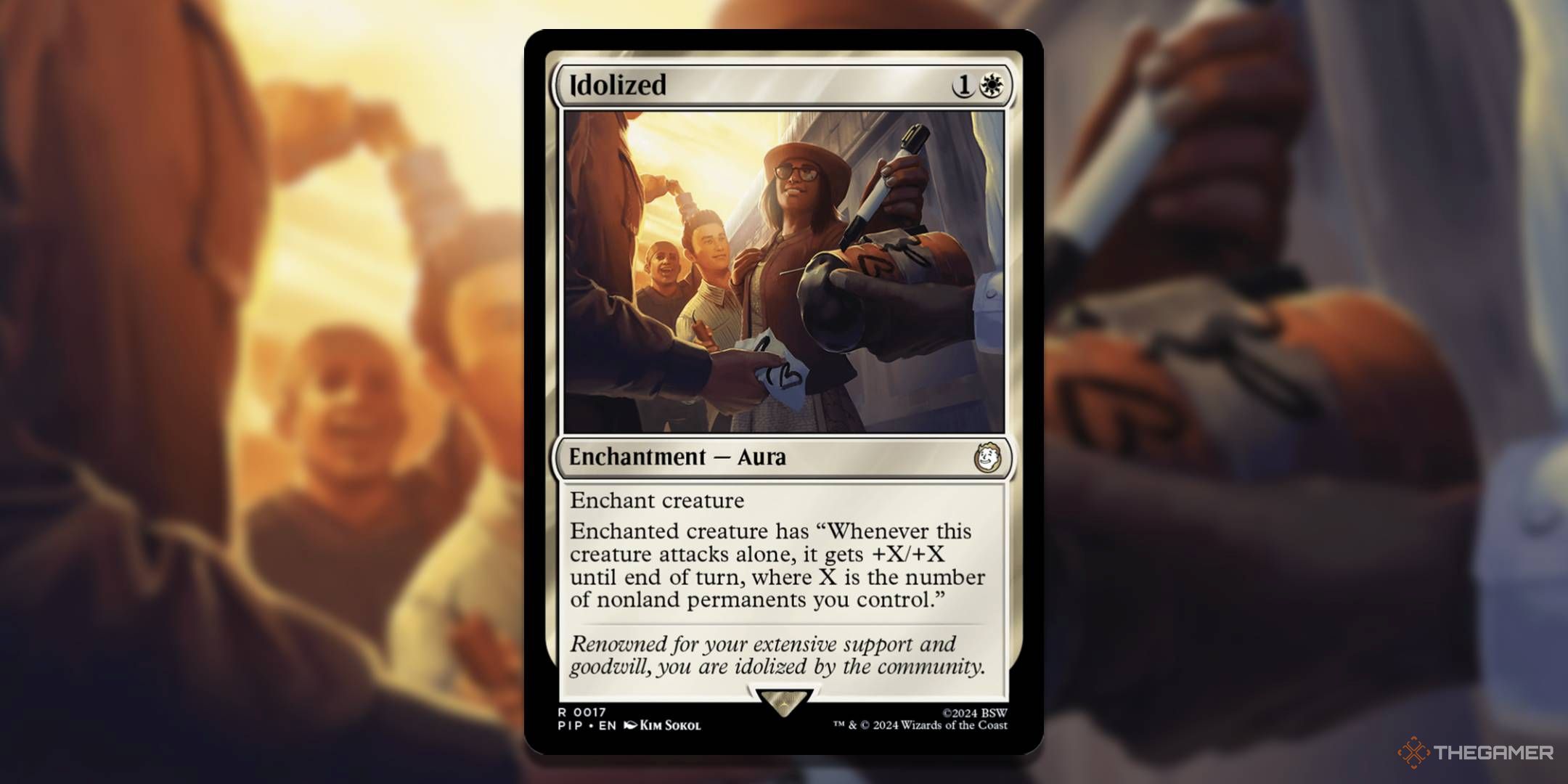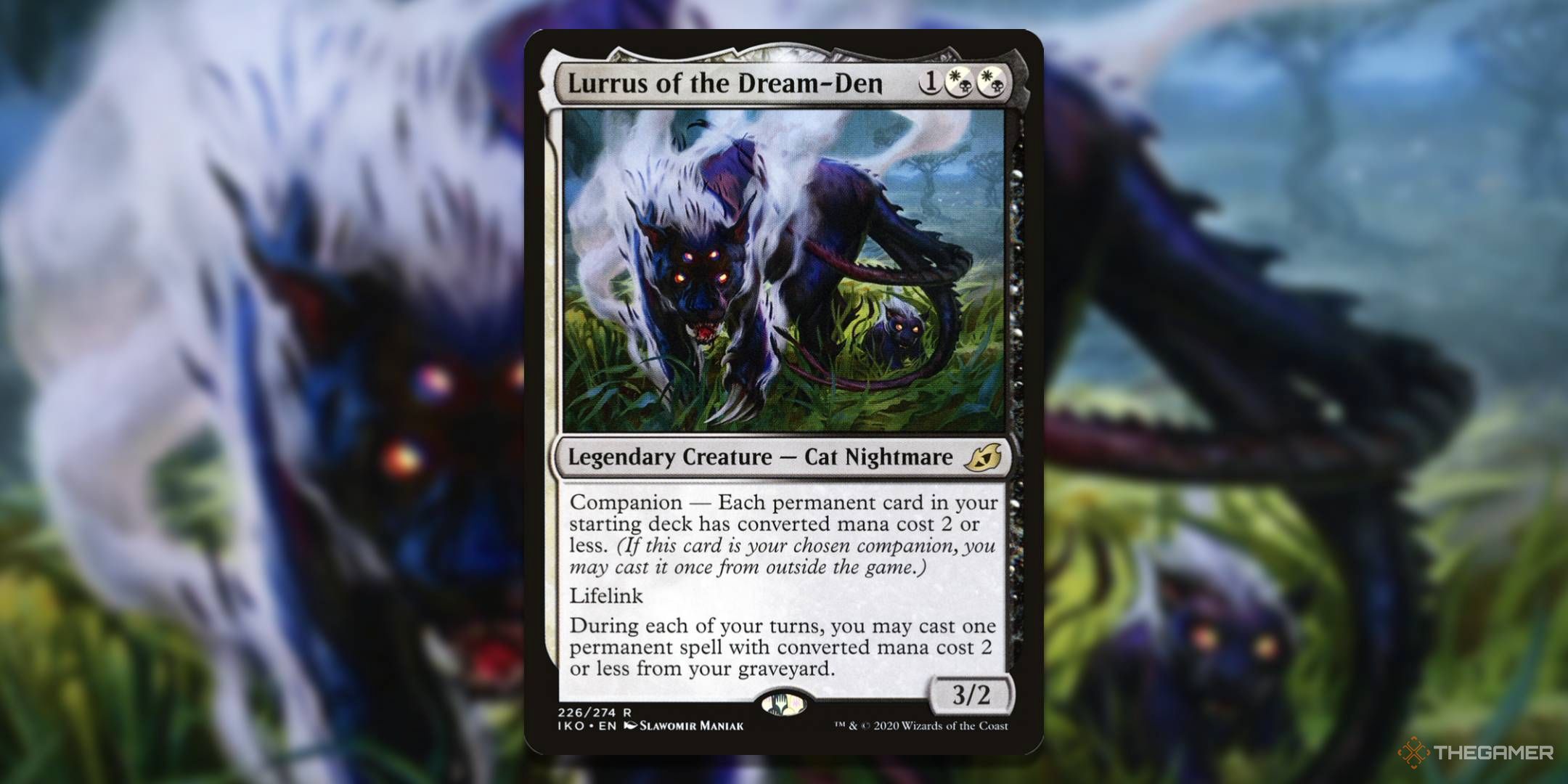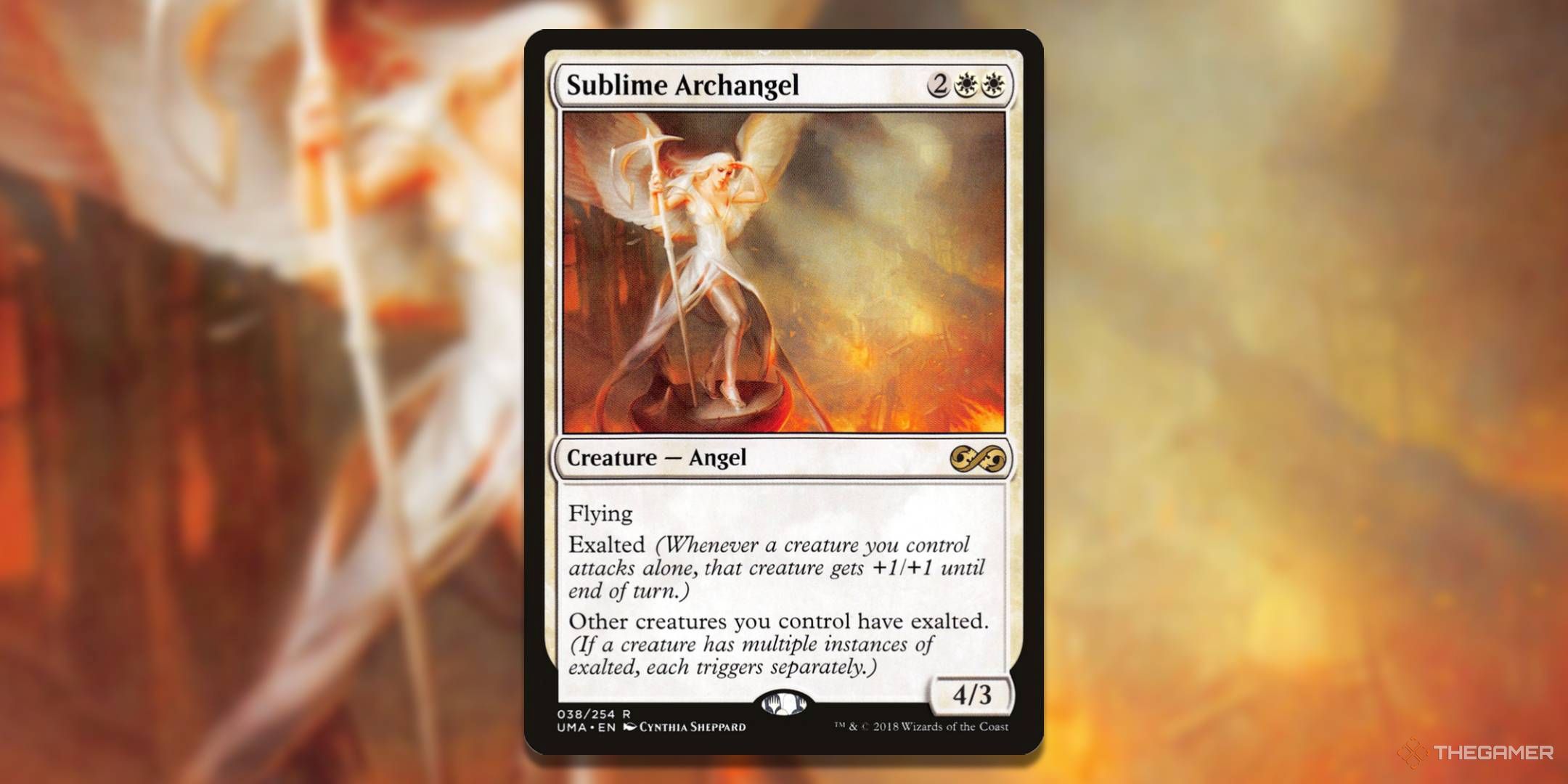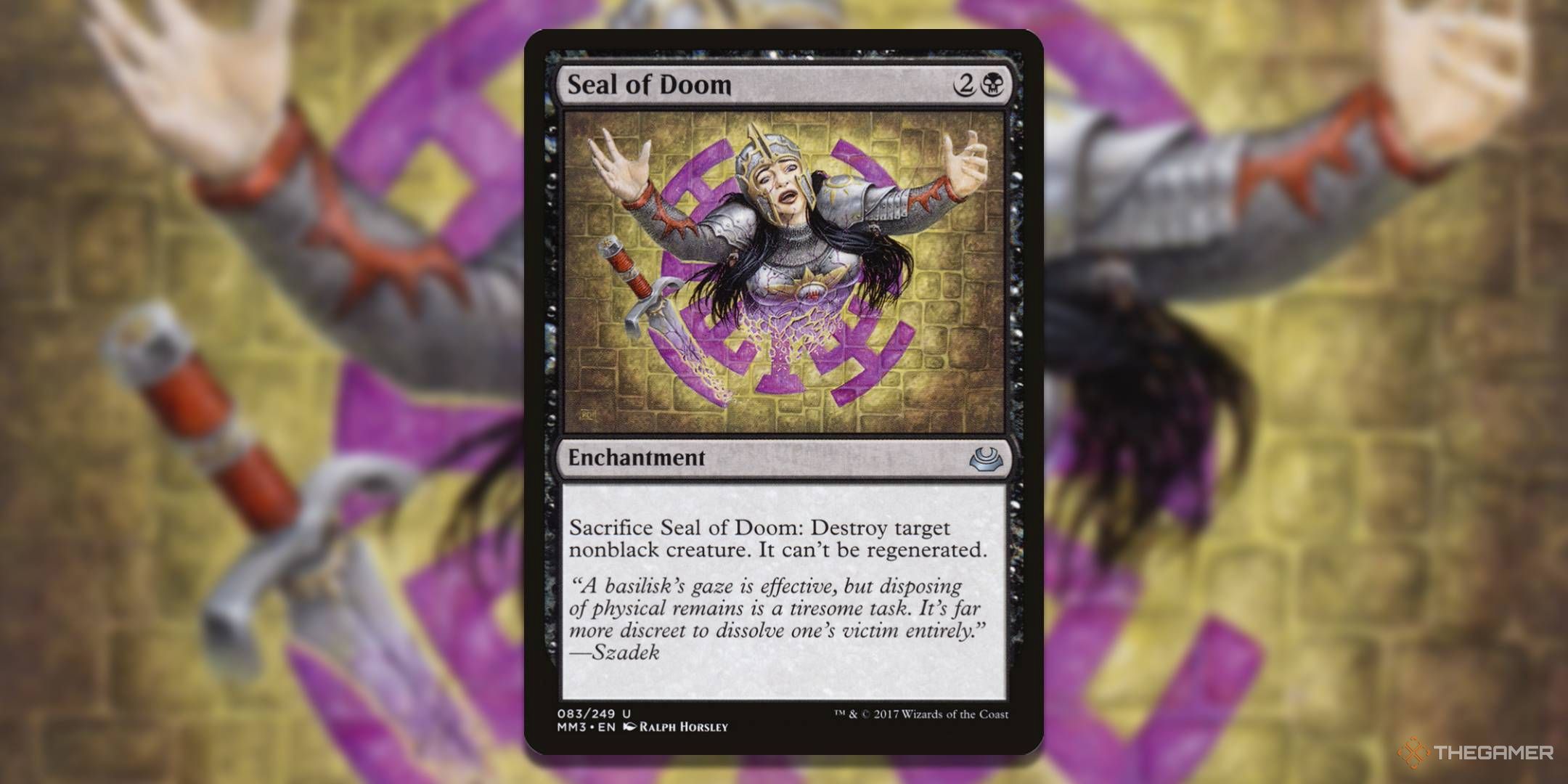Squall, SeeD Mercenary is one of the many legendary creatures you can use as your commander in Magic: The Gathering, released in the game’s crossover set with Final Fantasy. Squall is the main protagonist of Final Fantasy VIII, acting as the party leader and known for saying “whatever” and being a bit of a loner.
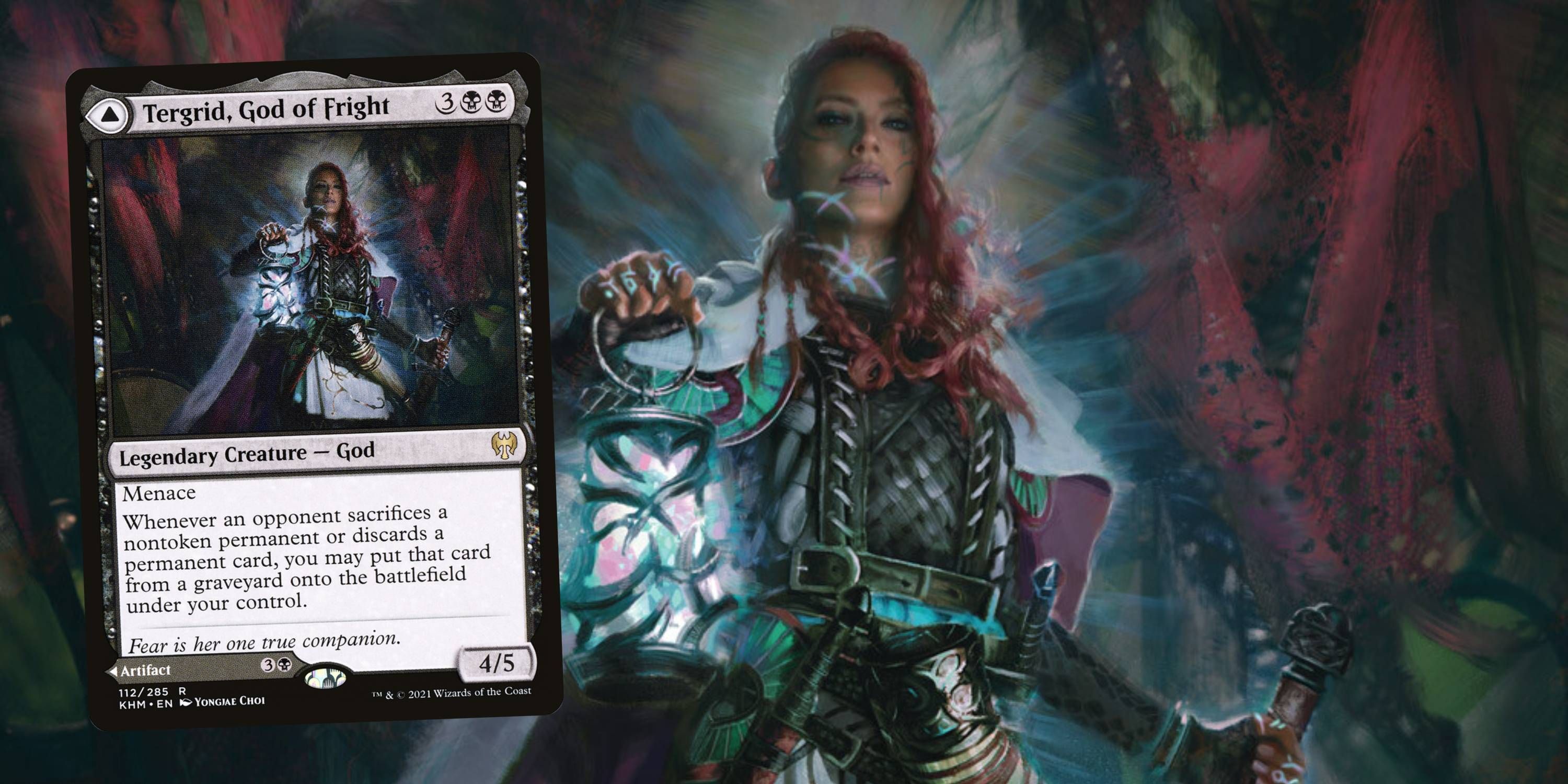
Related
Magic: The Gathering – Tergrid, God Of Fright Commander Deck Guide
Tergrid is one of the scariest commanders in all of Magic: The Gathering.
Based on Squall’s introverted personality and tendency to act alone, Squall’s Magic card reflects that by wanting to attack alone. A Squall commander deck acts as a mixture of Voltron (putting all focus on one creature), as well as a control deck utilizing Squall’s effect.
Decklist
|
Commander: Squall, SeeD Mercenary |
|||||
|---|---|---|---|---|---|
|
Accursed Marauder |
Akrassan Squire |
Aven Squire |
Battlegrace Angel |
Blood Artist |
Boromir, Warden of the Tower |
|
Bounty Agent |
Braids, Arisen Nightmare |
Burnished Heart |
Cathar Commando |
Dauthi Voidwalker |
Demon’s Disciple |
|
Duty-Bound Dead |
Elas il-Kor, Sadistic Pilgrim |
Exsanguinator Cavalry |
Fang, Fearless l’Cie |
Fleshbag Marauder |
Gravelighter |
|
Jirina, Dauntless General |
Kami of False Hope |
Knight of Glory |
Loran of the Third Path |
Lurrus of the Dream-Den |
Merciless Executioner |
|
Peacekeeper |
Plaguecrafter |
Scorn-Blade Berserker |
Selfless Savior |
Selfless Spirit |
Sigiled Paladin |
|
Psychic Paper |
Sublime Archangel |
Westfold Rider |
Zulaport Cutthroat |
Toxic Deluge |
Deadly Dispute |
|
Generous Gift |
Path to Exile |
Swords to Plowshares |
Village Rites |
Arcane Signet |
Brotherhood Regalia |
|
Commander’s Sphere |
Fellwar Stone |
Grim Bauble |
Key to the City |
Lightning Greaves |
Mind Stone |
|
Orzhov Signet |
Robe of Stars |
Sol Ring |
Swiftfoot Boots |
Sword of the Animist |
Talisman of Hierarchy |
|
Thought Vessel |
Trailblazer’s Boots |
Vorrac Battlehorns |
Angelic Benediction |
Angelic Exaltation |
Hour of Victory |
|
Idolized |
Momentum Breaker |
Seal of Doom |
Teval’s Jugment |
Underhanded Designs |
Brightclimb Pathway // Grimclimb Pathway |
|
Castle Locthwain |
Cathedral of War |
Caves of Koilos |
Command Tower |
Concealed Courtyard |
Desolate Mire |
|
Exotic Orchard |
Fetid Heath |
Isolated Chapel |
x8 Plains |
Rogue’s Passage |
Shattered Sanctum |
|
Shizo, Death’s Shadow |
Silent Clearing |
x8 Swamp |
Tainted Field |
The Black Gate |
Vault of the Archangel |
|
Witch’s Clinic |
|||||
The decklist contains 33 creatures, one sorcery, five instants, 18 artifacts, eight enchantments, and 34 lands. Squall is your primary attacker, while the creatures either control the battlefield or give Squall extra stat boosts.
Key Cards
Squall, SeeD Mercenary
The commander of the deck, Squall, SeeD Mercenary is the most important card in the deck. It gives any creature double strike when it attacks alone, something you’ll always want to be doing with Squall. This is important as each strike will trigger Squall’s other effect for two triggers instead of one.
If Squall manages to connect (something easily done by making it unblockable with Equipment), you get to bring a permanent back from the graveyard to the battlefield. This allows you to keep reusing permanents that sacrifice themselves for value, which is the core of the deck.
Squall’s effect to give double strike can apply to any creature, but Squall can only reanimate from the graveyard if Squall is the one that deals combat damage.
Idolized
You want to stick Idolized on Squall as quickly as possible, as it’ll provide Squall with a big stat boost whenever it attacks alone. At bare minimum, Idolized will give a +2/+2 stat boost on the creature it’s attached to, which only grows the longer the game goes on for.
Normally, a downside to Auras in Voltron decks is that if the creature gets removed, the Aura doesn’t stick around. However, with Squall, you can recover Idolized from the graveyard and put it back on Squall once you start attacking with it again.
Lurrus Of The Dream-Den
Lurrus of the Dream-Den acts as the secondary commander of the deck, offering a similar effect to Squall but without the need to attack. Lurrus lets you cast any permanent spell that costs two or less mana from the graveyard.
The card cast from Lurrus isn’t exiled, so as long as it doesn’t get removed from the graveyard through other means, you can always recast any spell you play with Lurrus on your next turn.
Lurrus is very useful for recycling your best utility cards, especially ones that allow you to tutor for other cards directly from your library. You can only use Lurrus’ effect once per turn, but you can stack this on Squall’s effect to re-use the same card multiple times in one turn cycle.
Sublime Archangel
Exalted is the most important keyword in the deck. It gives a creature that attacks alone +1/+1 for every instance of exalted on the battlefield. For example, if four permanents have exalted, the creature that attacks alone will get +4/+4 to its stats.
Sublime Archangel is the best card to grant exalted, as it gives it to every creature. Notably, if a creature has multiple instances of exalted, all of them will trigger as if they were separate cards. Sublime Archangel quickly turns your lone attacker into a massive threat, and one that can sometimes take someone out with just one attack.
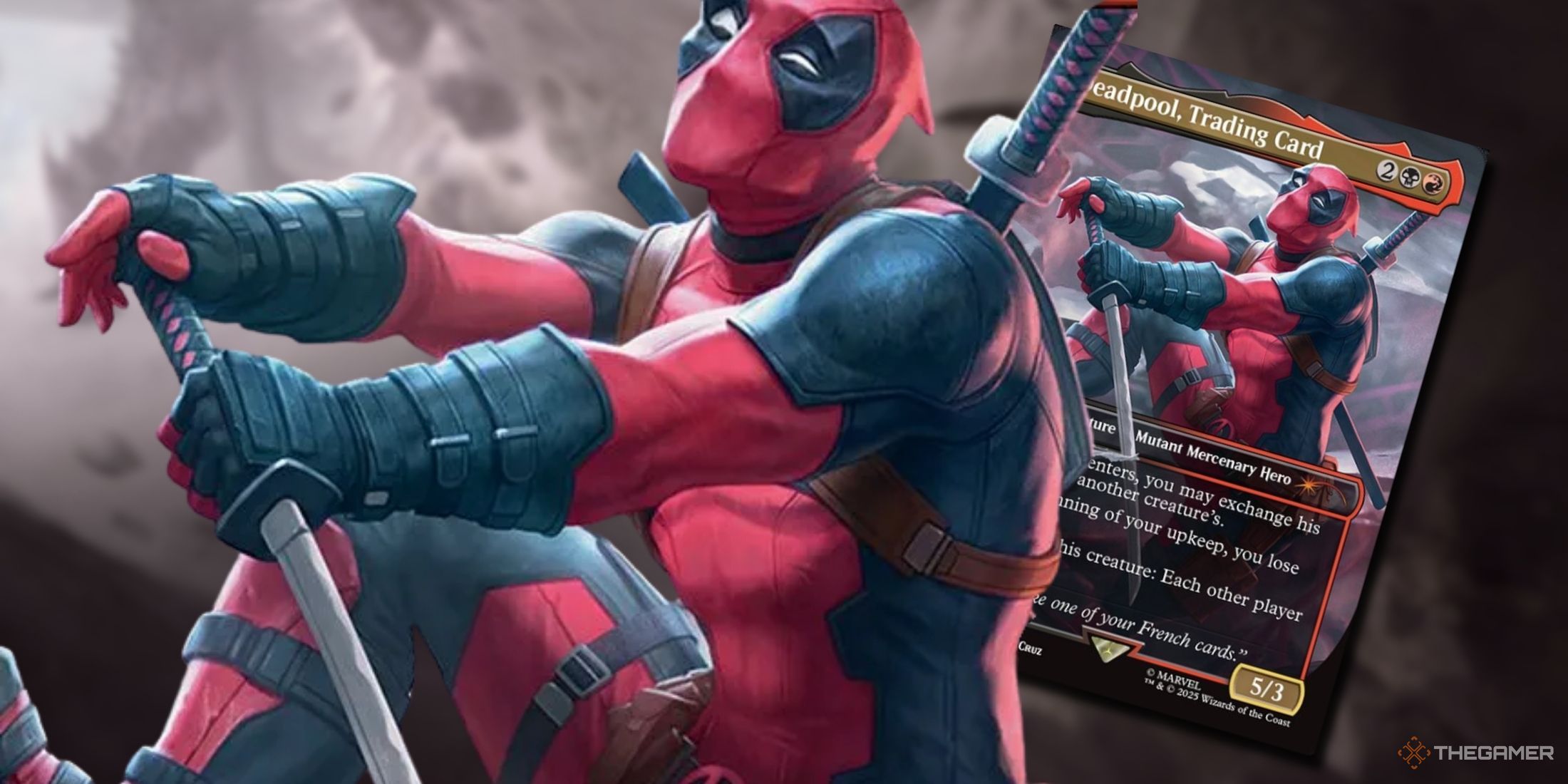
Related
Magic: The Gathering – Deadpool, Trading Card Commander Deck Guide
Master the Merc with a Mouth in Magic: The Gathering with our Deadpool, Trading Card Commander deck guide.
How To Play The Deck
A Squall, SeeD Mercenary Commander deck is based around attacking with only Squall, triggering your exalted abilities and connecting for damage to recycle your best permanents from the graveyard for constant use. This allows you to sacrifice your creatures without fear as Squall can easily bring them back.
The primary way to control the battlefield is with creatures that force every player to sacrifice a creature when they enter. Cards such as Accursed Marauder, Fleshbag Marauder, and Merciless Executioner all accomplish this, and have a mana value of three or less, allowing Squall to bring them back and force another mass sacrifice every time it connects for damage.
When these creatures that force sacrifice enter, it’s best to sacrifice them as once the effect resolves they tend to not do anything on the battlefield, and are better in the graveyard for Squall to reanimate.
The removal in the deck is a bit untraditional, focusing on permanents that can remove problematic permanents rather than instants or sorceries. Thanks to Squall’s recursion, Seal of Doom and Grim Bauble become much stronger. These provide more targeted removal while your forced sacrifice creatures can help clear out the weaker creatures.
You want to put Equipment onto Squall that makes it unblockable such as Brotherhood Regalia and Psychic Paper. This makes it easier to connect for damage and not need to worry about potentially losing Squall in combat.
To take someone out of the game through commander damage, a commander has to deal 21 or more combat damage to them. This is easily done with Squall thanks to giving itself double strike along with all the exalted triggers.
The primary win condition of the deck is winning through combat. Although you’re only attacking with one creature, Squall is a very threatening one with its Rough Divide ability. You often won’t take life totals to zero, but instead take them out through commander damage.
The biggest weakness of the deck is its over-reliance on Squall. Unfortunately, if Squall ever gets removed, your deck becomes much weaker. There isn’t a way around this due to the way Voltron decks need to be built. Luckily, there’s a good handful of Equipment that provides protection to Squall to make it harder to remove. If you don’t have access to Squall, you’ll have to use your suite of control cards to slow your opponents down until you can cast Squall.
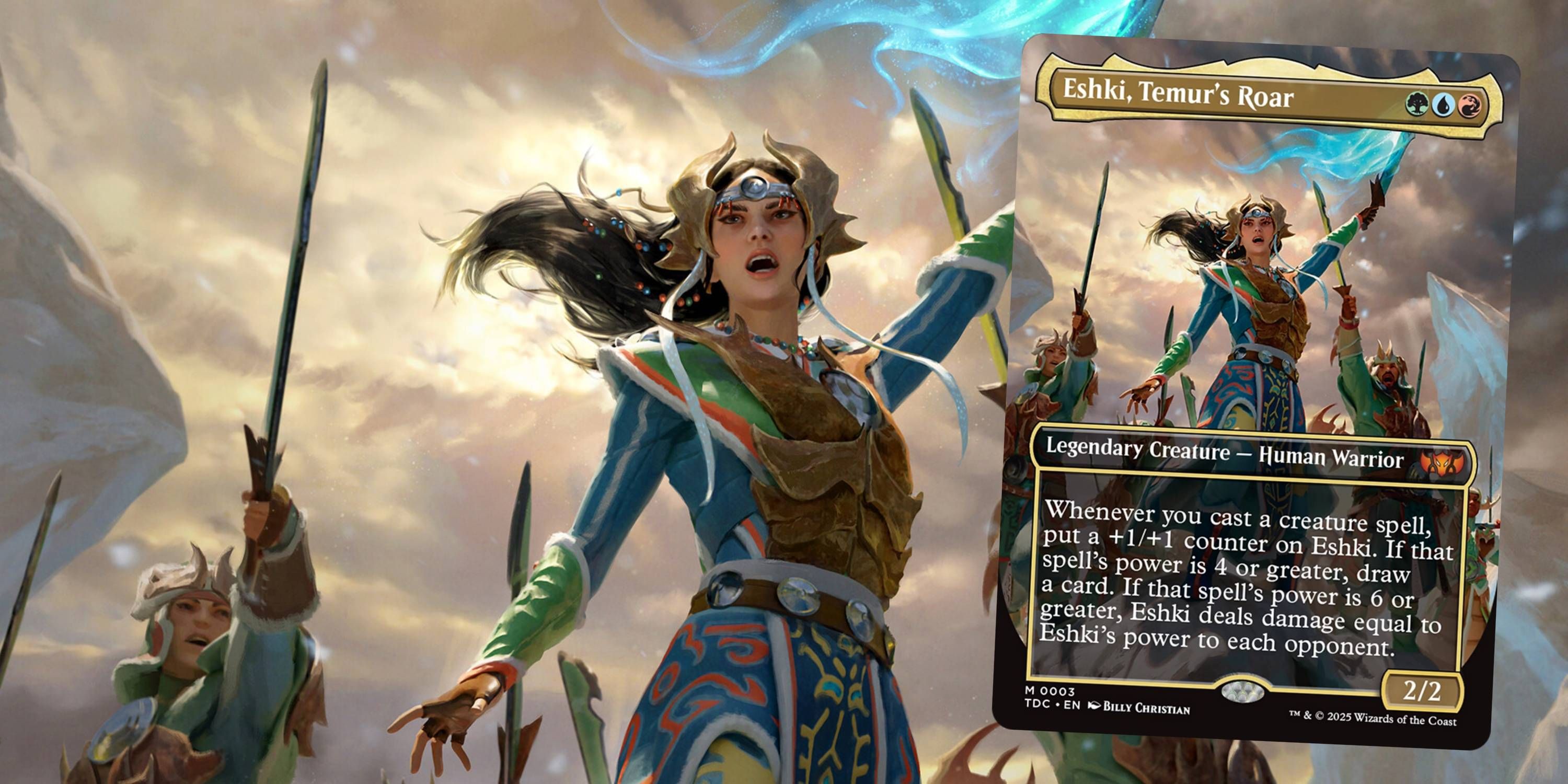
Next
Magic: The Gathering – Eshiki, Temur’s Roar Commander Deck Guide
Here are the best strategies and card picks for Eshiki, Temur’s Roar for MTG.

